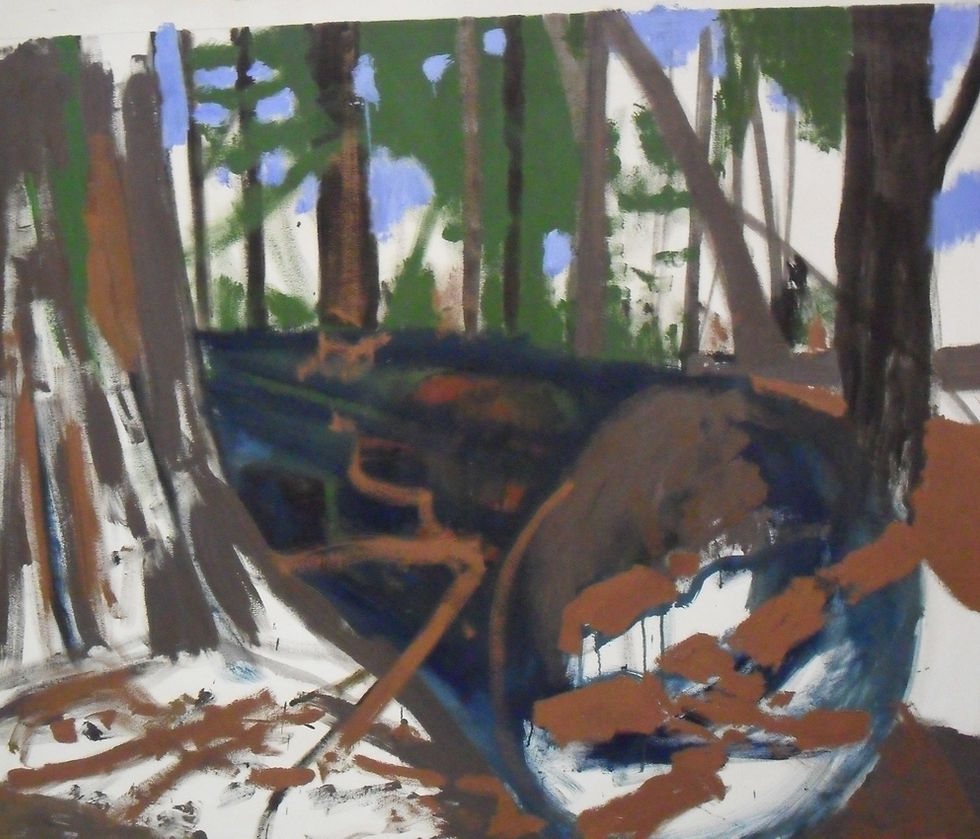“We will live in a world without memory, where images choose each other, like reflections in water” Guy Debord, from Notes on the Society of the Spectacle
My painting engages with multiple themes based on photos I take in my daily commutes or images I get from printed material and the internet. I see my practice as a documenting or archival process while continuing to acknowledge painting in it's historical context and the aesthetic inherent within the medium. Painting allows for critical interpretation of an event that can no longer exist in empirical or phenomenological truth. Representation for me is an allegorical function. The painted reference acting as stand-in for the real.
“ For if it is true that all thought begins with remembrance, it is also true that no remembrance remains secure unless it is condensed and distilled into a framework of conceptual notions within which it can further exercise itself” Hannah Arendt
My exhibitions are usually conceptual groupings of particular themes. I am continuously working on a standing project entitled "Ever Ending End" which combines social and political images from the media and my readings to construct absurd allegorical meta-narratives that verge on the surreal. although in my later practice I also began painting rainforests from west coast of Canada to create a counter- balance to this more overtly political work.

'To articulate what is past does not mean to recognise "how it really was". It means to take control of a meaning as it flashes in a moment.' Walter Benjamin from 'On the Concept of History'
Subjectivity and meaning. meaning in painting- meaning in art -in a time of hyper-accellerated inter-subjectivity. An over saturation of instantaneous access. even the vaguest translation of imagination makes a practice with meaning. It is not necessarily even culturally or politically effective or relevant; but on a basic level it can be a return to what is real even in the face of contemporary “end of history” nihilism, it is still an autonomous action and this in itself has a minimum power to show some sort of process of (self)understanding which is a reaction or force against the passive intake of everything else- expression as autonomy. even if that autonomy runs on cliches, it is still in it’s essence what indeed can inspire or even (naively) create meaning and new subjectivity.
So, what the act of painting becomes when tasked with representing history or for that matter anything, is that the painter acts more as witness , but witness only as a bystander whom is only able to express fragments which in turn act as memory which becomes the subjective interpretation of the event for themselves and then through them to the viewer. It becomes a locus point or entry point for memory. Rather than any truthful’ ‘objective’ representation , it is only a reminder or a reason to begin remembering. History can never be experienced in its entirety because even the subject(of history) uses the past in order to construct its present. Because art and the world both contain history, it is unlikely that either can be truly experienced in their entirety either.
Theodore Adorno wrote that Kantian epistomology was for him 'a kind of coded text from which the historical situation of spirit could be read with the vague expectation that in doing so one could aquire something of truth itself’.
